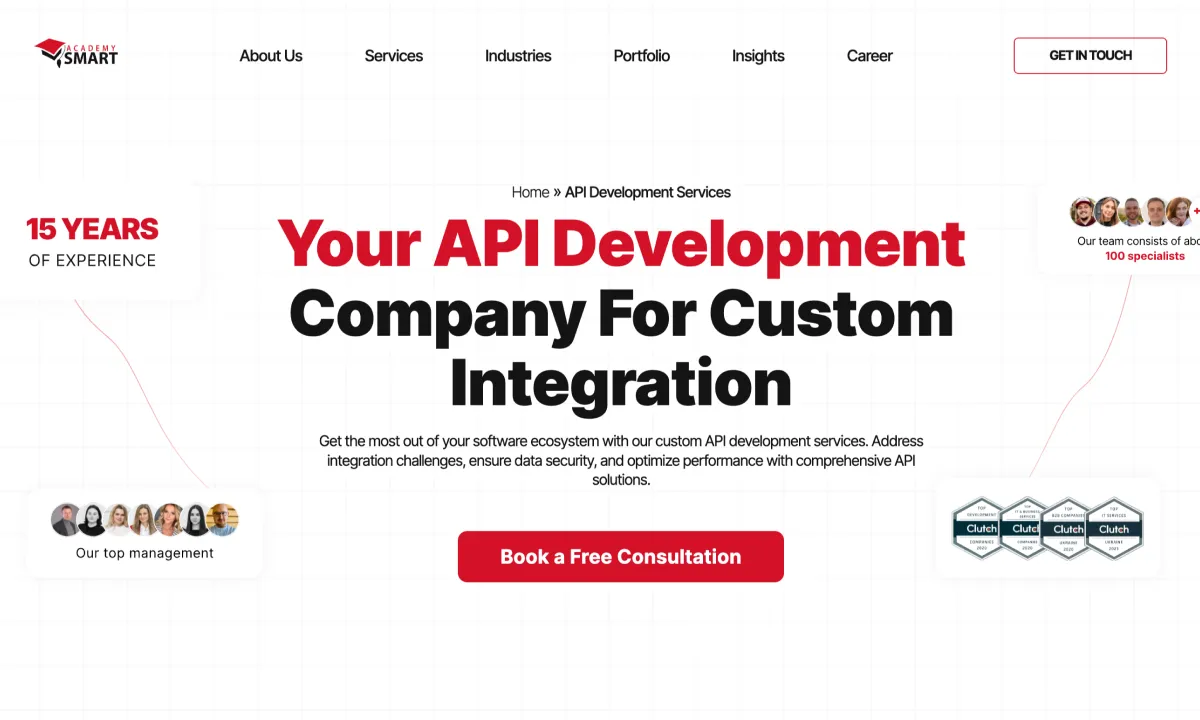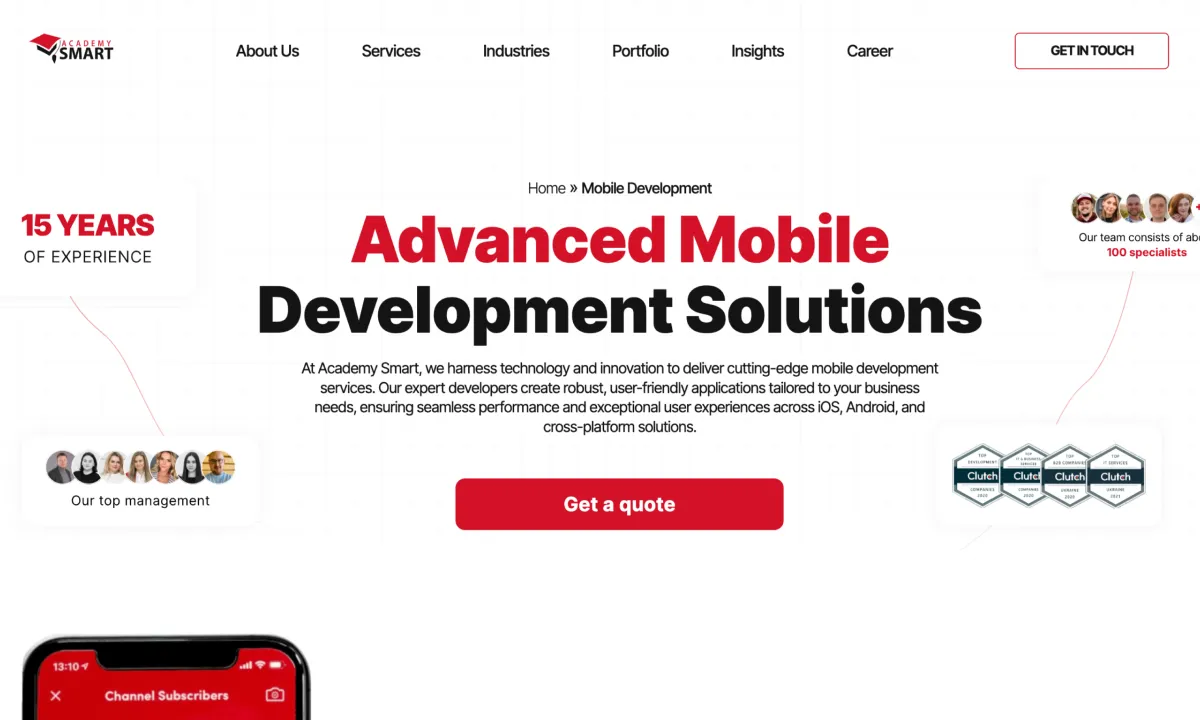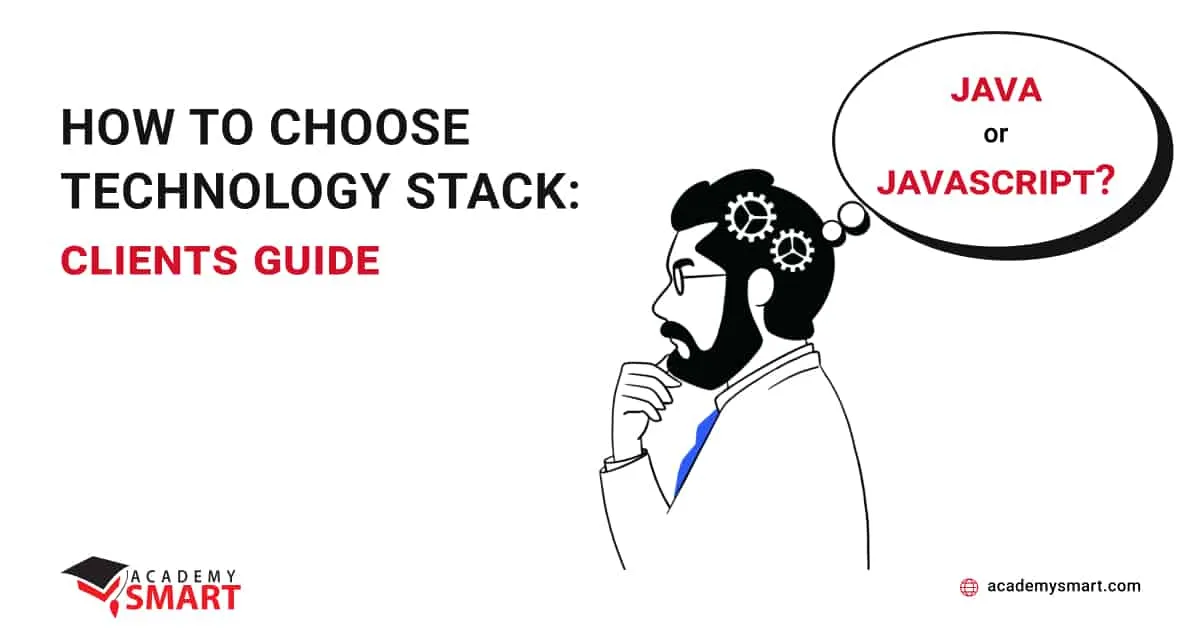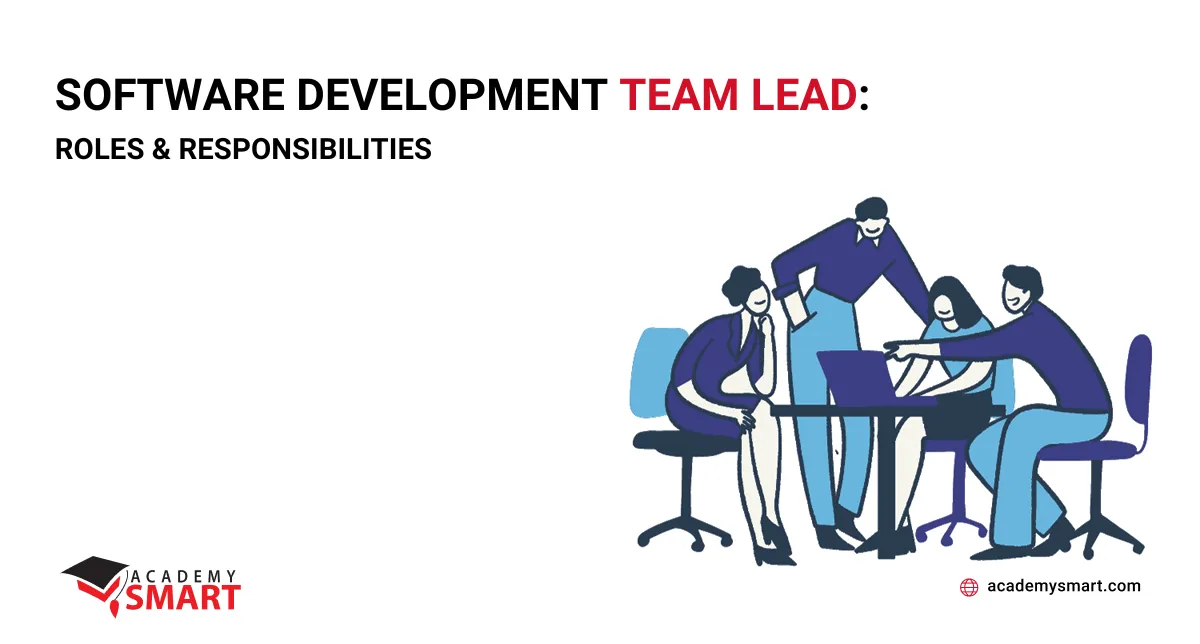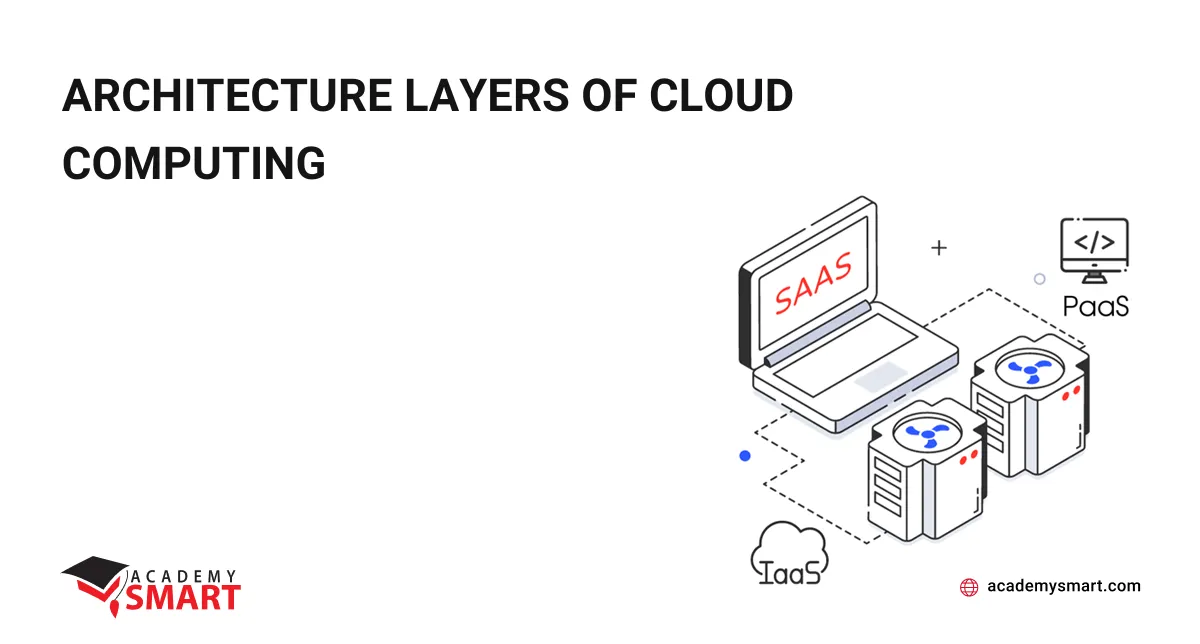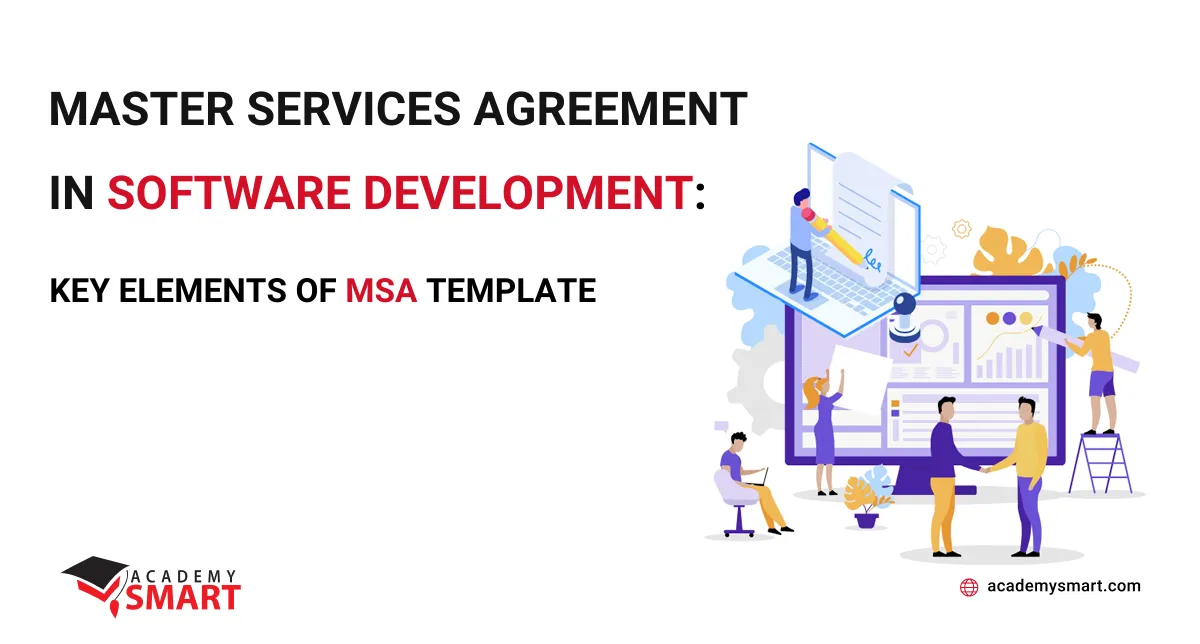
Master Services Agreement in Software Development: Key Elements of MSA Template
Contents
A Master Services Agreement (MSA) is central to fostering successful collaborations between businesses and software development service providers. It is essential for effective IT project management, as it defines the terms of engagement and ensures the protection of all parties’ interests. This article provides valuable insights into crafting a beneficial Master Services Agreement for your development project while highlighting common mistakes to avoid from the outset.
What is an MSA in Outsourcing Software Development
A Master Services Agreement, often abbreviated as MSA, is the guiding document that underpins collaboration between two or more parties in the software development realm. It’s a comprehensive agreement that outlines the terms, conditions, and expectations for ongoing and future projects.
As the MSA defines the rules of engagement and responsibility distribution, there are various types of building software master services agreements, each tailored to specific requirements and scenarios. These can range from overarching MSAs for long-term partnerships to project-specific ones focused on a single endeavor. The type of MSA chosen depends on the nature of the collaboration and the anticipated scope of work.
Typically, the outsourcing vendor is responsible for drafting the MSA in the software development industry. These IT service providers possess a deep understanding of the intricacies of software application development, making them well-suited to create an MSA that aligns with the project’s needs. Their experience working with different clients and diverse projects equips them with the expertise needed to produce a comprehensive and effective MSA swiftly. While clients can certainly draft their own MSA, it often involves a more extended review process since the vendor needs to scrutinize the document’s details.
What sets MSA apart from other close documents of project management in IT?
Comparing, for example, a stand-alone agreement vs a master agreement, we may find the first is specific to a single project and often requires starting from scratch with each new endeavor. In distinction, the MSA provides a broader framework that covers multiple projects, making it a more efficient choice for long-term partnerships.
A simple contract typically outlines the specifics of a single project, focusing on the immediate objectives, timelines, and deliverables. In contrast, a Master Service Agreement vs contract is a foundational document that addresses the ongoing relationship and provides a consistent set of terms and conditions for many projects.
Why MSA is necessary in software development
You might wonder why the MSA is required. Think of it as the foundation upon which the entire structure is built. Here’s why it’s indispensable:
- Reduced costs
With a well-crafted MSA in place, you eliminate the need for repeated contract negotiations and extensive paperwork. This streamlined approach saves time and money, allowing you to focus on the essence of the project rather than bureaucratic hurdles. - Simplified contract negotiations
You’ve already laid out the ground rules when you have an MSA. That simplifies the negotiation process for individual projects, as you can refer back to the overarching agreement for guidance. There’s less need to organize every specific activity of partnership from scratch. - Improved communication and collaboration
An MSA serves as a communication bridge between all parties involved. It ensures that everyone understands their roles and responsibilities. The MSA effectively keeps the project on track. - Risk mitigation
An MSA defines the responsibilities and potential pitfalls, providing assurances and indemnities for both parties in case of disputes or unforeseen issues. - Adaptability
As the business landscape changes, an MSA allows parties to adapt proactively, ensuring resilience in the face of unpredictability. - Conflict resolution
By highlighting potential conflict areas in advance, an MSA is a proactive measure for dispute resolution.
How to Create a Master Services Agreement: Essential Template Components
A well-structured MSA is the bedrock of successful application development collaborations, providing both parties with a clear roadmap and framework. It ensures transparency, accountability, and a mechanism for resolving issues that may arise during the project. Let’s explore the typical structure components of a master software development services agreement.
Goal and services
The MSA commences with an introductory section containing essential information about the involved parties, including their names, official addresses, and contact details. The core of the agreement lies in the description of services, setting the stage for the collaboration. Here’s what it typically contains:
- Primary goals: the big-picture objectives for future projects.
- Client anticipations: a clear understanding of what the client expects to achieve from the partnership.
- Services details: specific services and tasks, typically aligned with individual Statements of Work.
- Change management: protocols and costs for modifying or adjusting specification.
- Status reporting: a schedule for sharing progress updates.
- Work schedule: the standard of workweek and considerations for time zones.
- Contractor instructions: rules for engaging with other contractors.
- Independence warranties: how stakeholders maintain their autonomy.
Service quality standards and deadlines
This section outlines the benchmarks and performance criteria the vendor must adhere to. These standards, often based on industry best practices, objectively measure the vendor’s performance, ensuring that project goals are met effectively.
Service-Level Agreements (SLAs) within the MSA define performance standards, creating clear service quality and responsiveness benchmarks. These agreements typically include critical performance metrics, such as uptime requirements, data backup frequency, and response times for service requests. They allow the client to objectively assess service quality and hold the provider accountable if performance falls below agreed standards.
Moreover, SLAs outline the consequences of failing to meet these benchmarks, which may involve penalties, remediation procedures, or even the right for the client to terminate the agreement in severe cases. SLAs ensure a mutual understanding of expectations and predictability in IT outsourcing, facilitating a more productive partnership.
Deadlines are equally essential, attaching specific dates to project milestones. Adhering to these timelines is crucial for maintaining project momentum and preventing delays that could impact subsequent phases.
Change control and escalation protocols
The MSA provides a general framework for dealing with changes and resolving issues in the software development process. Change management outlines how to propose, approve, and implement changes in project scope, timelines, or resources. Escalation procedures provide a step-by-step guide for addressing issues that can’t be resolved at the operational level. It defines who should be contacted when a problem arises and how quickly they should respond, ensuring swift resolution. These mechanisms ensure that all parties understand how to adapt to changes while keeping the project on track.
Payment terms and conditions
The section clarifies how payments will be made and received. It also outlines how clients can accept or reject work, request revisions, handle fees, taxes, unplanned expenses, and the payment transfer method. It ensures clarity for both parties, eliminating any financial ambiguity. For your information, in the domain of software development, these payment methods are commonly used:
- Fixed price for projects with detailed plans and known delivery dates, where payments are tied to completed tasks or milestones.
- Time and Materials (T&M) for tasks with a flexible scope, where clients pay for actual hours and materials used.
- The dedicated team model for complex projects, where clients hire a staffed development team and pay monthly based on their contributions.
Confidentiality and intellectual property
The MSA specifies what information is considered confidential and not subject to disclosure. It may encompass proprietary business strategies, customer data, project details, etc. The Master Services Agreement may also outline whether the software development team can reference the client in marketing materials or case studies.
Furthermore, this section addresses ownership rights to products or services created during the contractual period, establishing who holds copyrights, patents, and other intellectual property rights related to project outcomes. That typically includes work produced under individual SOWs.
Closure and dispute resolution
The MSA specifies the overall duration of the client’s and developer’s partnership. This section also outlines the circumstances for early termination by either party, including reasons such as breach of contract, insolvency, non-performance, or unique causes specific to the agreement. The termination clause sets the notice period and the method for serving notice, allowing for an orderly exit strategy.
The MSA also houses the dispute resolution clause, which provides procedures for addressing issues that may arise during the project, from informal discussions to formal arbitration or litigation. Master Services Agreement for software development aims to ensure fair, timely, and cost-effective dispute resolve and sensitive data security.
Also, this paragraph may include an automatic renewal procedure beneficial for long-term collaborations, enabling the agreement’s seamless continuation when both parties agree.
Additional provisions
Besides the core components, the MSA may include other miscellaneous sections deemed necessary by the organization. These might encompass:
- Setting the legal framework that governs the agreement and specifying the jurisdiction for resolving legal matters.
- Outlining how data protection regulations will be adhered to during the collaboration.
- Outlining arrangements for product testing and post-production assistance.
- Defining the process for making minor changes to MSA documents and the pre-agreed review periods, etc.
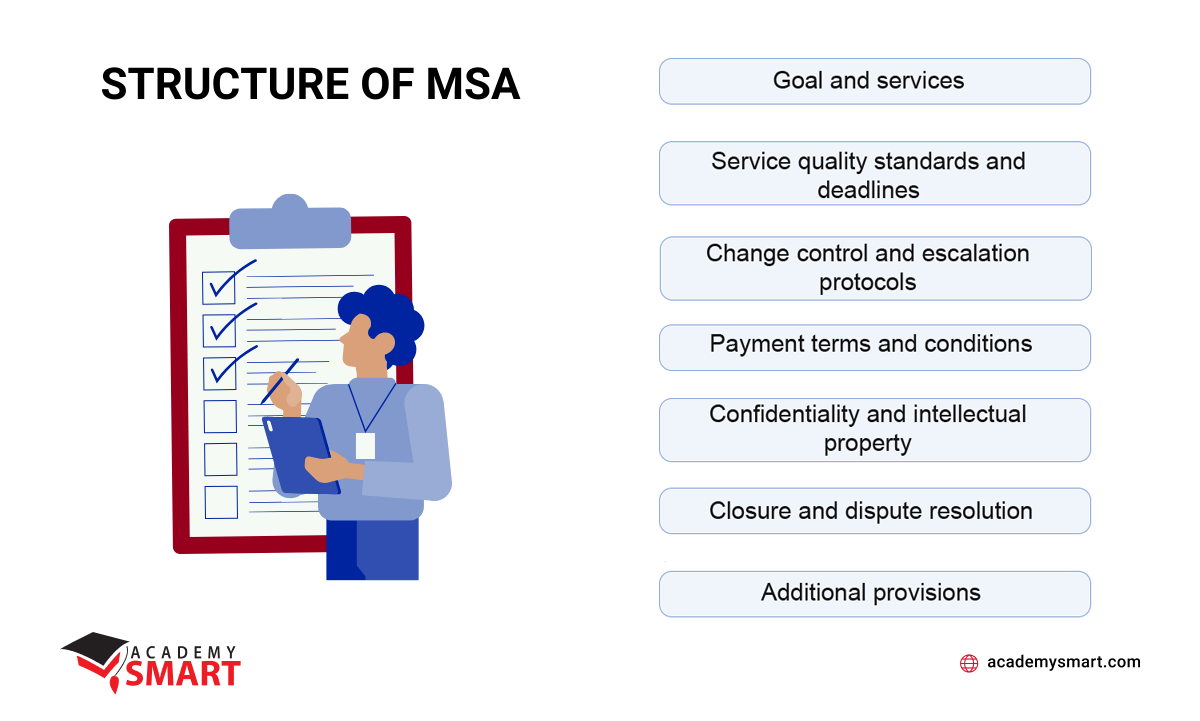
Common structure of Master Services Agreement template
Common Mistakes to Avoid in Master Software Services Agreements
Creating a Master Services Agreement for a software development company is a pivotal step, but it can also be fraught with risks if not handled carefully. To ensure that your MSA is fair, enforceable, and devoid of common pitfalls, here are some mistakes to consider:
- Vague scope of work
Failing to provide a clear and comprehensive description of the scope of work can lead to misunderstandings. Specify project goals, expectations, tasks, and deliverables to ensure both parties are on the same page. - Incomplete payment terms
Unclear payment spans or missing details about pricing structures can lead to financial disputes. Clearly outline payment schedules, methods, and any potential additional costs. - Neglecting deadlines
Missing or ambiguous deadlines can disrupt project timelines and cause disagreements. Set specific milestones with associated dates to keep the project on track. - Lack of intellectual property clarity
Failing to define ownership and usage rights of intellectual property created during the project can lead to disputes over who owns the code, designs, or other assets. - Inadequate change management
Not specifying how changes to the project scope, timelines, or resources will be handled can result in scope creep and conflicts. Include a process for change requests and approvals. - Poor communication guidelines
Without clear communication procedures, project updates may be delayed or misunderstood. Define communication channels, reporting frequency, and escalation points. - Ignoring dispute resolution
Disregarding to outline a clear path for conflict resolve can lead to costly legal battles. Specify how disputes will be addressed through mediation, arbitration, or litigation. - Not involving legal counsel
Given this document’s complexity and legal capacity, before signing an MSA, it is wise to have it reviewed by a lawyer to ensure the agreement complies with the law and protects your interests.
Considering these non-obvious nuances and meticulously crafting your MSA, you can enhance collaboration, minimize risks, and establish a solid basis for successful software development projects.
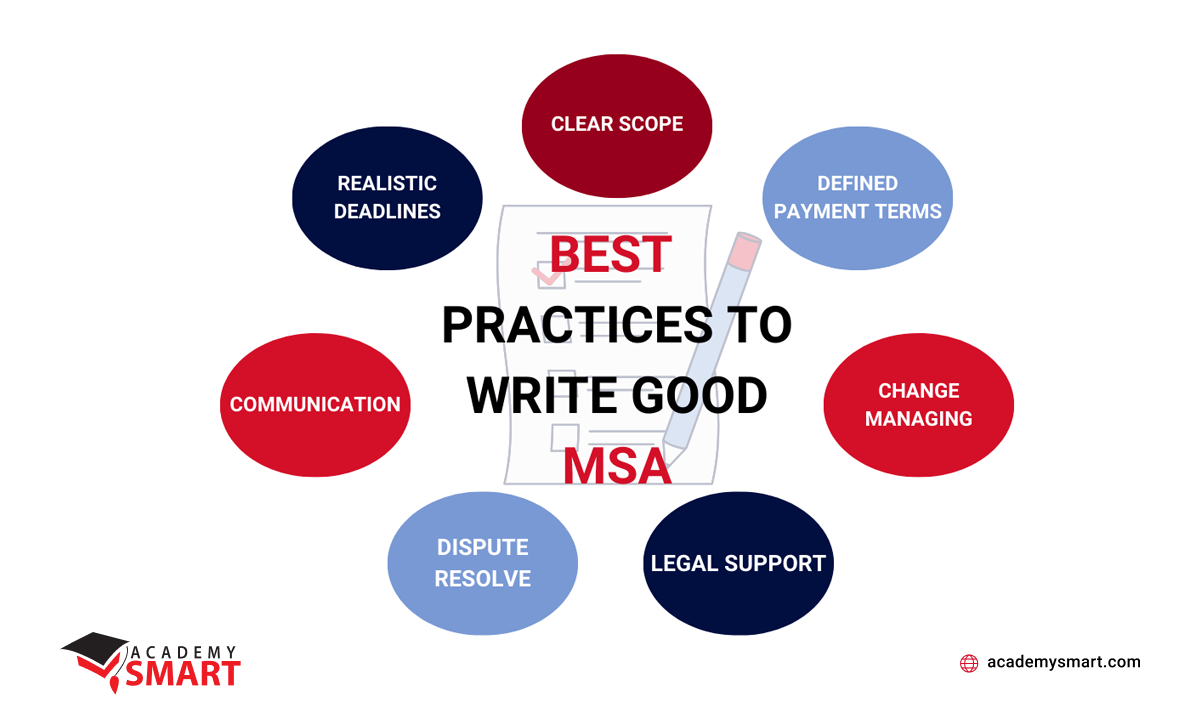
Best practices of software development’s MSA creation
Why to Choose Academy Smart as your Outsourcing Developer
The outstaffing company Academy Smart has been a reliable partner for enterprises from 14 countries in Europe, America, Africa, and the Middle East over the last 13 years. We have over 100 talented and creative IT professionals specializing in full-stack web, mobile, and cloud application development. At your service are experts in programming, creating AI and machine learning systems, virtual and augmented reality, and experienced and proactive project managers to organize the workflow successfully. Our experts are fully committed to the Western work ethic and culture, working flexibly and for results.
Do you not have enough expertise in custom software development? Contact us, and we will provide you with suitable personnel.
Frequently Asked Questions About Master Services Agreements
What are some common pitfalls to avoid in MSAs?
Common mistakes to avoid in Master Service Agreements (MSAs) include:
- vague scope definitions;
- unclear payment terms;
- inadequate intellectual property clauses;
- neglect of dispute resolution procedures.
Do I need an attorney to help me create a Master Services Agreement?
While it’s not mandatory, having an attorney review and assist in creating a Master Services Agreement is highly recommended to ensure legal compliance, protect your interests, and prevent unclarity in the deal.
Book a free consultation

Reach out to start talking today!

